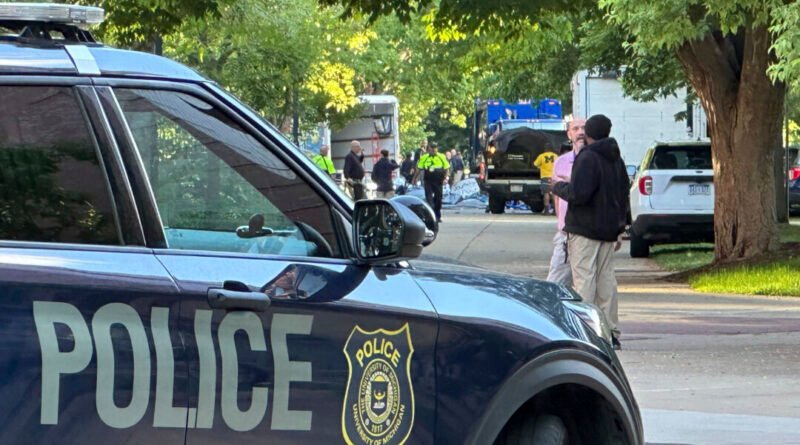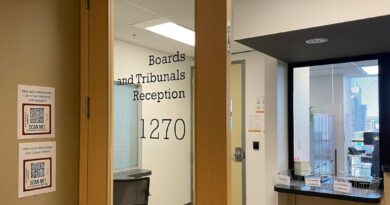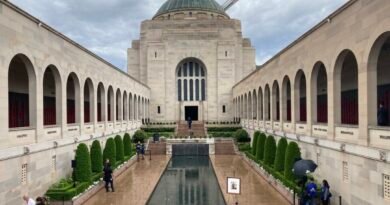University of Michigan Police Disperse Pro-Palestinian Camp
ANN ARBOR, Mich.—Police dispersed a pro-Palestinian encampment at the University of Michigan early Tuesday morning, citing a public safety threat. This action occurred less than a week after demonstrators escalated their protest by placing fake body bags on a school official’s lawn.
Officers wearing protective gear removed around 50 individuals from the Diag, a historic site for campus protests. Videos posted online showed police using what seemed to be an irritant spray, forcing people to retreat.
According to university spokeswoman Kim Broekhuizen, at least four people were arrested during the operation.
The encampment was established on April 22, just before the end of the school year and the spring commencement period. Posters taunting President Santa Ono and other officials were also prominently displayed.
Following the clearing of the encampment, nearby buildings including the undergraduate and graduate libraries were closed, and students seeking to study were turned away by police.
In a statement, President Ono mentioned that the encampment had posed safety risks due to overloaded power sources and open flames. He stated that organizers had refused to make necessary changes despite a fire marshal’s inspection.
“The disregard for safety guidelines was merely the latest incident in a series of concerning events tied to an encampment that has consistently violated the rules governing the Diag—specifically those ensuring equal access to the space for everyone,” stated President Ono.
Protesters have called for the university’s endowment to cease investments in companies with Israeli connections. However, the university contends that it has no direct investments, with less than $15 million allocated to funds potentially including Israeli companies—less than 0.1% of the total endowment.
“There’s no room for negotiation. This matter is resolved,” remarked Sarah Hubbard, the Chair of the Board of Regents, last week.
On May 15, a group of 30 protesters visited Hubbard’s residence and placed fake blood-stained sheets on her lawn symbolizing body bags. They also conducted chants and drumming using a bullhorn.
Additionally, individuals wearing face coverings left demands at the doors of other board members.
“This conduct demonstrates how our inaction against antisemitism directly leads—literally—to my doorstep,” expressed board member Mark Bernstein, a lawyer from the Detroit area, during a recent Regents meeting. “Who’s next? When and where will this end? As a Jewish person, I recognize the answers to these questions due to our history filled with tragedies that we are at risk of repeating. Enough is enough.”
Across the country, students and others have established tent encampments on various campuses demanding divestment from Israel. Campus tensions over the conflict have been heightened since last fall, with protests intensifying following a crackdown on an encampment at Columbia University on April 18. Nationwide, arrests at campuses have exceeded 3,000.
On Monday, Drexel University in Philadelphia issued warnings to disband an encampment, resulting in a campus lockdown, virtual classes, and continuous police surveillance.
Many Drexel employees were instructed to work remotely. President John Fry stated late Monday that the encampment had disrupted campus activities and could not be allowed to persist.





